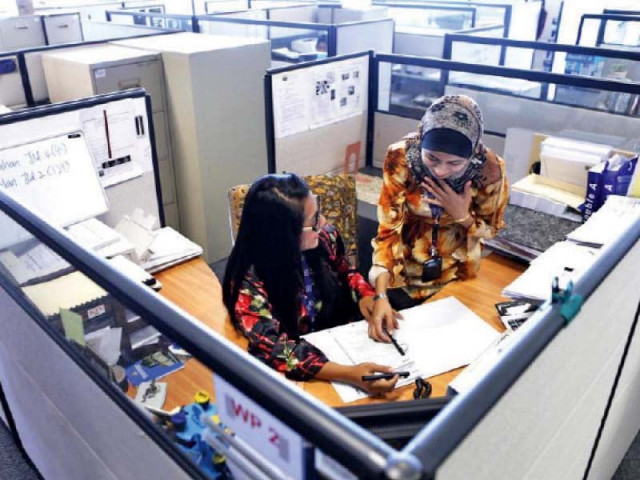Experts urge holistic efforts to empower women
Say issues can be addressed by setting up dedicated women help desks

The issue of women’s financial inclusion is not related to a single ministry or a department only. In fact, a holistic approach is required to economically empower women across Pakistan, remarked MNA Shandana Gulzar Khan.
Speaking at a virtual public-private dialogue series on “Gender-Focused Economic Reforms”, she said, “Now, the problem being faced is that post-18th Amendment, the matter of women development falls within the provincial domain.”
“Unfortunately, provinces treat women issues as a matter of social welfare,” she said, adding that it was the core problem as issues of almost half of the population could not be regarded merely as welfare issues. “These must be part of national agenda.”
The MNA added that the national budget had no specific focus on women, let alone women entrepreneurs. However, the Ehsaas Emergency Cash Programme - empowering women and putting them into the formal banking network - is a silver lining.
“Efforts by the government and different ministries and departments are under way and many things are in the pipeline, though there still is a long road ahead to empower women economically.”
Speaking on the occasion, State Bank of Pakistan (SBP) Infrastructure, Housing and SME Finance Department Joint Director Fatima Javaid noted that improving financial inclusion for women was one of the key priority areas of the National Financial Inclusion Strategy (NFIS) - adopted by the government in 2015 - to enhance formal financial access to 50% of the adult population and ensure that 25% of adult females had a formal bank account by the end of 2020.
She said that the SBP was working to have a gender mainstreaming policy framework to encourage women employment in financial institutions. However, she added that reluctance of female entrepreneurs to consult financial institutions due to social constraints was another issue.
“This can be addressed by introducing dedicated women help desks at the institutions concerned. Besides, all the SBP initiatives encourage female entrepreneurs from remote areas to acquire credit and other financial services smoothly,” she added.
Small and Medium Enterprises Development Authority (Smeda) Manager Nabeela Afridi shared that the youth and women had been given special importance in the new SME policy, which would come out soon.
She proposed that women chambers of commerce needed to be strengthened along with establishing women business complexes within industrial estates and Special Economic Zones.
Published in The Express Tribune, December 2nd, 2020.
Like Business on Facebook, follow @TribuneBiz on Twitter to stay informed and join in the conversation.



















COMMENTS
Comments are moderated and generally will be posted if they are on-topic and not abusive.
For more information, please see our Comments FAQ